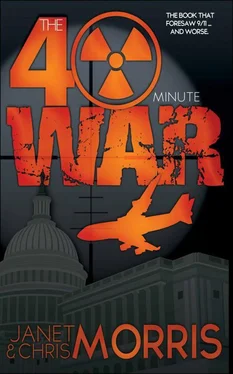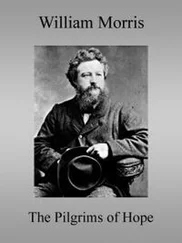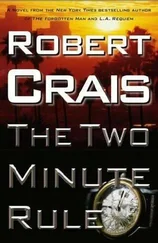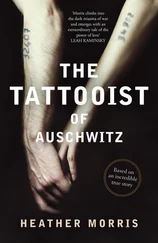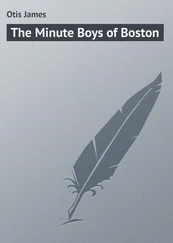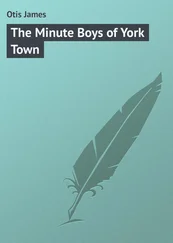In the soft Jerusalem night, nothing moved as Ashmead’s team got on with the business of waiting. Occasionally, from the truck’s cab, Ashmead could hear the low crackle of static as Thoreau got status reports from the Israeli pilots on the location, number, and probably hair and eye color of their targets.
He rubbed his arm, where the inoculation was still a sore, warm bump: he didn’t really believe it could do what Beck said it could, but Dow sure did. Ashmead had taken a chance with Netanayhu, not knowing how much the wily old colonel suspected about the long-range anti-cancer effects of Morse’s serum, but trade-offs were a dime a dozen these days.
The com gear they had was more pertinent: most of their haute Agency gear was useless; the MOSFET-driven, satellite-bounced radiotelephones didn’t work without a satellite to handle the signals. This didn’t bother Ashmead so much as it did Zaki, who seemed to be sitting shiva for his dead equipment. So Ashmead had put Zaki on the streets; as Chris Patrick’s handler-to-be and the team’s case officer, there was plenty for him to do: Elint had activated his nets and brought agents to Yael for debriefing; when they’d sent him over to the university to pick up the serum, the glazed, shut-down look was gone from his eyes. It must have gone very smoothly for him to have rejoined the team in time for the action.
And, looking west toward the campus, Ashmead saw that Zaki was just in time: red tracers arced through the night and the sound of hostile fire, choppers, and an overflight jet two miles away pulverized the introspective silence of his waiting fighters.
Then Thoreau’s lazy voice came out of Ashmead’s transceiver: “Here they come, Coach; the jeep in front’s got one American, Sky-Eye thinks, but even they can’t see into a panel truck.”
“Batter up, folks,” he told them, and threw his assault rifle up to his shoulder, balancing his weight on one knee, so he could watch through the infrared scope.
“Check, Coach; batter at the plate,” came Jesse’s reply before the others sounded off; Jesse, the sharpshooter, had a laser-targeting device mounted on his sniper rifle which put a dot on the target invisible to the naked eye and which Jesse had sworn he didn’t need, when Saiyeret offered it, but had taken because the Saiyeret major had smiled like an elder brother and said, “Saves time; less time, more kills.”
Only Slick failed to respond as the count-off continued; damned sulky kid: Slick had wanted Dow for himself, would have had a better chance at him if he’d been point instead of Jesse, but Ashmead was conserving Slick: if anything happened to Ashmead, Slick would have to step into the breach.
A full minute later than was proper, Slick said, “Check complete.”
Ashmead had been beginning to sweat again, considering a quick run over there to see if Dow hadn’t put some extra backup out and they’d come across Slick and killed him. He decided he’d beat some sense into Slick when this was over: it wasn’t a free-for-all any more. It might not be the world they’d known and loved, but it was a world in which the old rules had to obtain.
Then they began to hear racing engines and he could feel his people hunker down.
Stray bullets from the Saiyeret herding the terrorists into their trap started flying; ricochets whined and muzzle flashes showed like distant fireworks, spattering the night with orange-yellow light so that even without the infrared scope, he could make out the terrorists in the jeep, running without lights, that came careening around the curve, a truck right behind and Israeli vehicles, lights blazing, in hot pursuit.
He couldn’t pick out Jesse’s first shot in the din of the fire fight, but he saw the lead jeep veer crazily and heard Jesse’s murmured, “Gotcha!” come out of his transceiver.
A chopper swooped in from above, searchlights playing, twenty-millimeter cannon in its nose spraying the road carefully in hopes of slowing or turning the truck behind the jeep while, from the chopper’s open side, a black-garbed figure took careful, placed shots with a semi-automatic rifle.
The jeep was back on the road, its driver hanging over the side as someone else struggled to push him out and take the wheel, and Jesse’s head popped up from cover as he tried to shoot the replacement driver from behind.
A grunt, then a howl of animal rage issued from Ashmead’s transceiver as the jeep roared past him, but he was too busy dodging incomings and spraying the jeep with full-auto fire to have his team count off: he’d find out who and what later.
“All yours, catcher,” he said, hardly knowing that he did as Thoreau pulled onto the road, cutting in between the jeep and the truck behind in a maneuver that threw Ashmead, though he was expecting it, to his knees and smacked him in the eye with the scope housing.
Then he had plenty to shoot at, prone on the floor of the lorry with a panel truck full of terrorists behind him, returning fire as best they could while their driver tried to avoid crashing into the side of the lorry Thoreau had so inconsiderately wheeled into their path and which was now fishtailing, its rear wheels locked, directly ahead.
Knowing Thoreau, Ashmead ducked his head, cradling his rifle with his body’s weight, and grabbed hold of the metal frame where the canvas was lashed to it just in time to avoid being thrown bodily onto the truck behind them as Thoreau slammed on the brakes and executed the collision he had in mind.
Ashmead vaulted up, spraying full-auto through the windshield behind him as he jumped onto the steaming, crinkled hood of the panel truck and emptied his clip into first the balaclava’d occupants of the front seat, then straight through the panel to take out whomever might be behind.
Rolling off the hood as he changed clips, he ran around to the rear of the terrorists’ truck just as the Israeli pursuit vehicle behind panic-stopped, its nose sideways across the road, and six black-clad Saiyeret in flash hoods poured out.
Ashmead’s grenade rolled into the panel truck a fraction of a second before a Saiyeret commando wrenched open its back door and threw a second one.
Ashmead hit the dirt, which was littered with spent brass, hands over his ears and his face turned away as the flash-bangs went off.
Good, disciplined boys, those Saiyeret fighters—they’d been told not to risk fragmentation grenades until they were sure there wasn’t a case of serum inside, and they followed orders, even though one live terrorist was all it took to get you very dead.
The clap and flash made Ashmead’s ears ring despite his protecting palms and showed him every vein in his eyelids, but he kept rolling toward the soft sand at the roadside, out of harm’s way.
When he sat up there, Galil on his knee, he saw the Saiyeret leader, Uzi on his hip, standing back a little and watching his men boost themselves into the panel truck.
The chopper was landing, three men wearing bulky night-vision goggles that made them look like spacemen hopping out, and the noise of it helped mask the transceiver squawking on Ashmead’s shoulder for another minute or two.
When the rotors slowed and stopped, he was already making his way to the Saiyeret leader’s side, listening with one ear as Slick counted casualties in the jeep skewed in front of his position up the road.
The dark hood of the Saiyeret team leader dipped in acknowledgement; his voice was muffled by the respirator that also contained his com unit: “Rafic. Nice job. Want to see your American?”
“Is he alive?”
“Not a chance: two through the chest, one through the skull. Here’s his ID.”
Dow’s face stared up at Ashmead from an Agency badge. “Let’s make a positive match.”
They climbed into the ravaged panel truck and, while the Saiyeret major held a flashlight, Ashmead turned the crumpled figure from the wall against which his blood had splattered—very carefully, and with his SIG handgun on Dow the entire time.
Читать дальше
